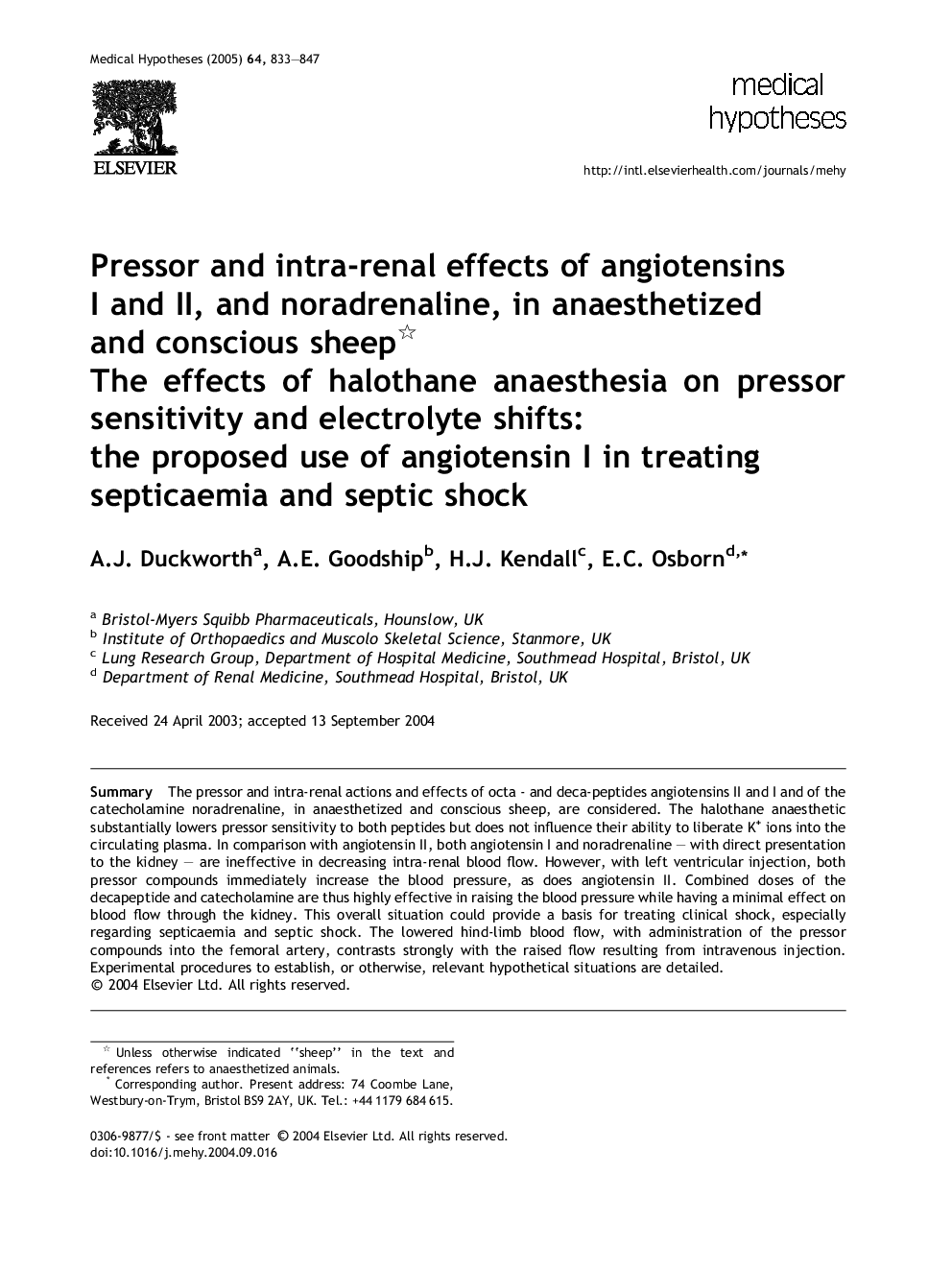| Article ID | Journal | Published Year | Pages | File Type |
|---|---|---|---|---|
| 8995807 | Medical Hypotheses | 2005 | 15 Pages |
Abstract
The pressor and intra-renal actions and effects of octa - and deca-peptides angiotensins II and I and of the catecholamine noradrenaline, in anaesthetized and conscious sheep, are considered. The halothane anaesthetic substantially lowers pressor sensitivity to both peptides but does not influence their ability to liberate K+ ions into the circulating plasma. In comparison with angiotensin II, both angiotensin I and noradrenaline - with direct presentation to the kidney - are ineffective in decreasing intra-renal blood flow. However, with left ventricular injection, both pressor compounds immediately increase the blood pressure, as does angiotensin II. Combined doses of the decapeptide and catecholamine are thus highly effective in raising the blood pressure while having a minimal effect on blood flow through the kidney. This overall situation could provide a basis for treating clinical shock, especially regarding septicaemia and septic shock. The lowered hind-limb blood flow, with administration of the pressor compounds into the femoral artery, contrasts strongly with the raised flow resulting from intravenous injection. Experimental procedures to establish, or otherwise, relevant hypothetical situations are detailed.
Related Topics
Life Sciences
Biochemistry, Genetics and Molecular Biology
Developmental Biology
Authors
A.J. Duckworth, A.E. Goodship, H.J. Kendall, E.C. Osborn,
